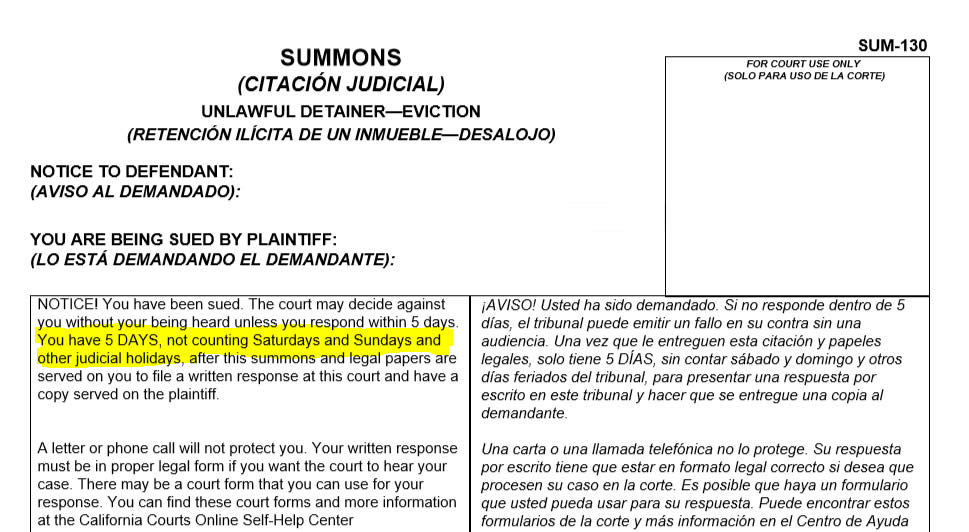Do You Have to Pay Rent if Your Rental Home Needs Repairs?

What are the rules about housing conditions that landlords must follow?
Your landlord must follow the building, housing, and health laws where you live. These laws are usually local (city or county) codes and ordinances (laws). Your landlord’s duties may be different depending on whether you live in an apartment or a standalone home.
 In an apartment building, your landlord must:
In an apartment building, your landlord must:
*Make sure the building does not have rodents (like mice and rats) or bugs (like roaches, termites, or bedbugs).
*Provide garbage pickup.
*Provide plumbing, including hot water.
*Provide heat. (But not air conditioning unless required by your lease or the city or county laws where you live.)
*Keep areas around your building clean and safe.
In a single-family home or duplex, your landlord may:
Make you responsible for many of the duties above by saying that in your lease (in writing).
It is very important to read your lease before signing it and keep a copy of the signed lease with your important papers.
What happens when a landlord fails to obey housing codes?
If your landlord does not make needed repairs, give you things, or keep the place clean (as required by law), you can do something about it. However, under Florida law, you are not allowed to simply make repairs yourself and subtract the costs of those repairs from your rent payments.
You have two options depending on whether you want to stay or move out:
If you want to stay: You can stop paying your rent, called withholding, until your landlord makes at least a reasonable effort to solve the issue.
If you want to move out: You can move out before the end of your lease, canceling your lease without having to pay a penalty.

What must a tenant do next?
With both options, the first step is giving your landlord a letter, called a 7-day notice. The letter warns your landlord that you plan to stop your rent payments or move out early.
If you want to move: You must still wait the full 7 days after you give the letter to give your landlord a chance to fix the problem. If it is not fixed, you should move out immediately after the deadline and return the keys to your landlord.
If you want to stop paying rent: You must follow several specific steps. And you can only take these steps if you are not behind in your rent payments and the issues in your home are serious enough to be against the law.
Issues that are serious enough may include:
Necessary repairs (broken fridge, faulty plumbing)
Missing things (no heat, no garbage pickup)
Unacceptable conditions (bug or rodent problems, badly overgrown landscaping)
You should give the letter to your landlord 7 days before your next rent payment is due. You must deliver the letter in person, with another person there (a witness), or send it by certified mail. If you send the letter in the mail, you must mail it 12 days before your rent is due. Be sure to make and keep a copy of the letter before you give it to your landlord and keep proof, including the date, of delivery. You may need this proof if your landlord tries to later evict you for not paying your rent.
Your letter to your landlord must be in writing and include the following information:
A list of the issues that need to be fixed.
The deadline to fix the problem, which is 7 days after your landlord receives the notice.
Your plan if the issues are not fixed by the deadline. This is a statement of whether you are going to move out or refuse to pay rent after that date.
Should I stop paying rent or just move out?
You should think carefully before choosing to move out instead of just stopping your rent payments.
Your landlord may disagree about whether the issues in your letter are serious enough to be against the law. If your landlord disagrees and you move out, your landlord may then demand that you owe a penalty fee or still owe them rent until your lease ends.
Your landlord could sue you to try to recover this money. But landlords often choose not to go to court, and may instead report the supposed debt to the credit bureaus. This can harm your credit score, and credit reports are difficult to change and can harm your ability to rent a home and get a loan in the future.

You can download What Every Tenant Should Know About Withholding Rent or What Every Tenant Should Know About Withholding Rent (Spanish) to see a sample.
In the letter, you should make sure to list every problem that needs to be fixed and include copies of the local law, enforcement reports, and any other evidence you think might help prove your claims.
What is a housing code inspection?
Before you give your landlord the 7-day notice, you may want to have a housing code inspection.
A city or county inspector will look over, or “inspect,” your home. The inspector will then write a report listing any violations. You can ask the code enforcement office in your city (or county) to do the inspection for you for free. Your landlord may be angry about your decision to report these problems to an inspector and may try to evict you by filing a lawsuit. But the court can decide that the lawsuit is retaliatory and deny your landlord’s attempt.
You should keep a copy of your inspection report. It can be especially helpful if you have to go to court because it has been written by someone neutral (not you or your landlord). It is useful to include a copy of the report in your letter to your landlord. You should also keep photos, records, and other evidence of the issues in your home. Also keep notes or records of any contact (letters, emails, phone calls, meetings) you have with your landlord.
Remember, as long as you carefully follow the legal steps, you have the right to stop paying rent until the problem is fixed. But you must save the rent money you would owe. After your landlord corrects the issue, you must then pay the owed rent. Or if your landlord sues you, you cannot defend yourself in court until you deposit the money you owe with the court clerk’s office.
Are there different rules for a Section 8 Voucher?
Yes. If you rent your home with a Section 8 housing voucher, special rules apply to you.
Section 8 housing is where a local government agency (called a housing authority) pays part of your rent. You are not allowed to stop paying your rent or move out before your lease ends if you use a voucher and your landlord does not fix the problem.
With a Section 8 voucher, you should report any problems with the condition of your home in writing to your caseworker. You can ask your caseworker to do an audit inspection of your home. This audit is like a housing code inspection – a survey done by the city or county on request, but only for tenants not using vouchers. You should keep a copy of your request for the inspection. Also keep photographs, records, and other evidence of the issues.
What Should Be Done With My Rent Money?
No matter what, YOU MUST SAVE YOUR RENT MONEY.
You will need it to pay your landlord after the issues are mostly fixed. There is also a chance your landlord will not want to make repairs and may try to evict you for not paying your rent by filing a lawsuit. If so, you will have to give your rent money to the court clerk’s office before the judge will consider your response to the lawsuit or schedule a hearing where you can tell your side of the story.
If you follow the steps above and your landlord still tries to evict you, your papers will be your most important defense in court. Make sure to keep the copy of the 7-day notice you gave your landlord and proof of its delivery. The court will decide whether you or the landlord gets to keep the rent money. This decision will depend on the amount and type of issues in your home and what your landlord did to fix the problem.
What should I go if I get an eviction notice?
One of the first steps your landlord must take to throw you out is called an eviction notice. Your landlord must first warn you, by giving you one of the following in writing:
A letter demanding overdue rent (called a 3-day notice). This letter may say that you have broken your lease agreement in some other way.
Legal papers called the Complaint (the landlord’s request for your eviction) and the Summons (the court’s notice of the lawsuit).
If your landlord is trying to evict you, you must receive the right papers at each step. However, you have a limited time to respond (3-5 days). If your landlord has not fixed serious issues in your home and you received one of the letters above, you should immediately call your local Legal Services office. You should also do this if you disagree with your landlord (you did pay rent or didn’t violate your lease). Your local Legal Services office may be able to help you defend yourself or file papers in court. Do not wait to contact Legal Services for help.
The 5-day deadline to respond to an eviction lawsuit begins counting down when your landlord gives you the legal papers (called serving you). If you don’t answer in time, you will likely lose the case and be evicted. If you sent your landlord a 7-day notice, you should include a copy and proof that you delivered it to your landlord with the papers you give the court (called an Answer). You must also give your rent money to the court clerk’s office before the court will listen to your response or set up a hearing.
Where Do I File?
After you get an eviction notice, you must submit your responses to the court where the lawsuit was filed. Your landlord should have started the case in the county where you live. Any responses should go to the court clerk’s office, called the clerk of the court, which is usually inside the county courthouse.
You also have to mail a copy of your responses to your landlord or their lawyer. The Complaint and Summons should give you the name and address where you should send the copy (usually on the last page). This is the paperwork that your landlord sent you.
Make sure to keep a copy of any papers you receive and submit in a safe place. This includes any evidence like photos, reports, and official papers. This also includes records of conversations between you, your landlord, and the court like emails, letters, calls, and meetings. Once you give your answers and rent money to the court clerk’s office, the judge will inform you about the next steps (usually by mail). The court may need more information or it may schedule a hearing. You may also be able to check on your case online or at the courthouse itself.

Tags:
Eviction Information,
Landlord Information,
Property Maintenance,
Tenant Information
 Finding information for Evictions can be a run around for many Landlords as well as Tenants. We started NationalEvictions to give property owners everything they will need to first understand the Eviction Process in their State, and with this find the Forms needed to File Evictions and next When it comes time to file the evictions find Companies that are ready to aid them with everything from Filing an Eviction LawSuit to the Service of the Official Court Documents.
Finding information for Evictions can be a run around for many Landlords as well as Tenants. We started NationalEvictions to give property owners everything they will need to first understand the Eviction Process in their State, and with this find the Forms needed to File Evictions and next When it comes time to file the evictions find Companies that are ready to aid them with everything from Filing an Eviction LawSuit to the Service of the Official Court Documents. We partnered with USLegal Forms to offer Clients Forms, Leases, and Eviction Packages found on our website pages.
We partnered with USLegal Forms to offer Clients Forms, Leases, and Eviction Packages found on our website pages. Articles written by many of the Top Industry Leaders, Learn about information in your State or read the articles in One of our Categories.
Articles written by many of the Top Industry Leaders, Learn about information in your State or read the articles in One of our Categories.
 We started this to help the many Landlords, Property Owners & Investors with finding information about evictions. We added directories where clients can find: Law Firms, Process Servers, Public Notaries in the states they live in. We offer this information not excluding Tenants, there are times when tenants rights have been violated and NationalEvictions has the information to help Tenants defend and answer an eviction with information and links in the States they live in.
We started this to help the many Landlords, Property Owners & Investors with finding information about evictions. We added directories where clients can find: Law Firms, Process Servers, Public Notaries in the states they live in. We offer this information not excluding Tenants, there are times when tenants rights have been violated and NationalEvictions has the information to help Tenants defend and answer an eviction with information and links in the States they live in.









 In an apartment building, your landlord must:
In an apartment building, your landlord must:












